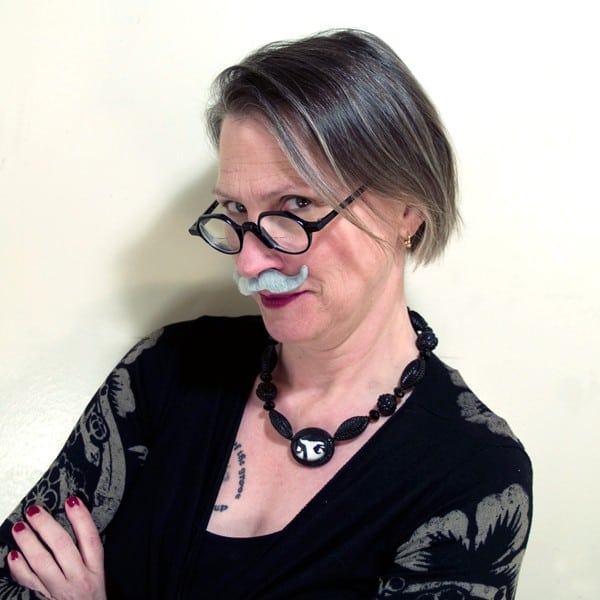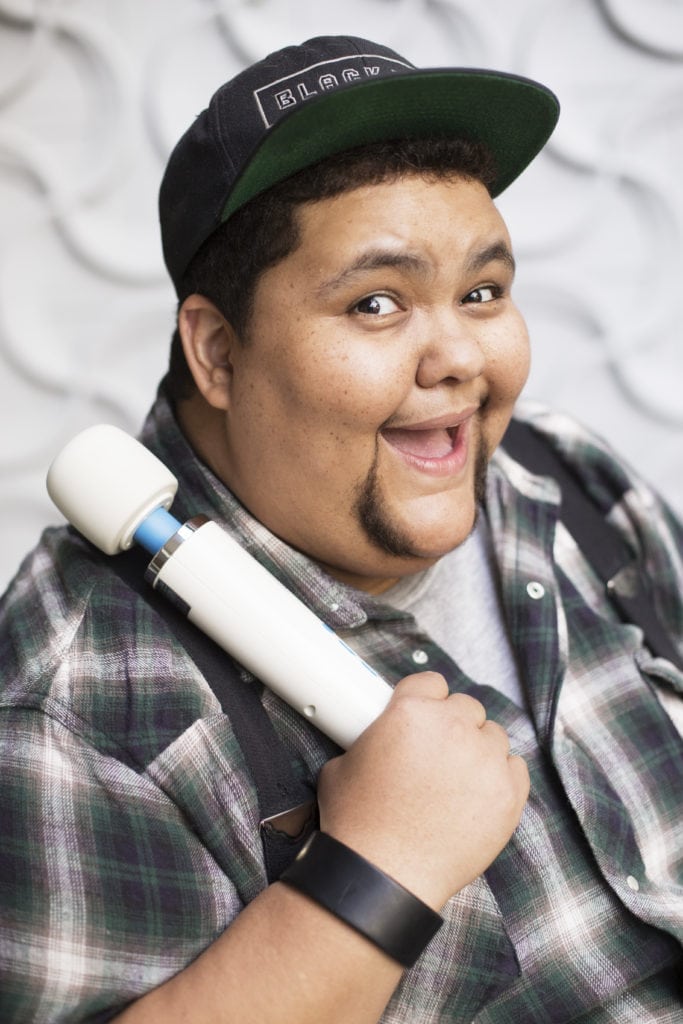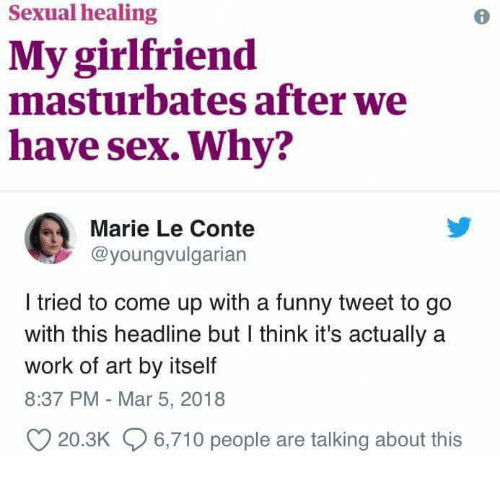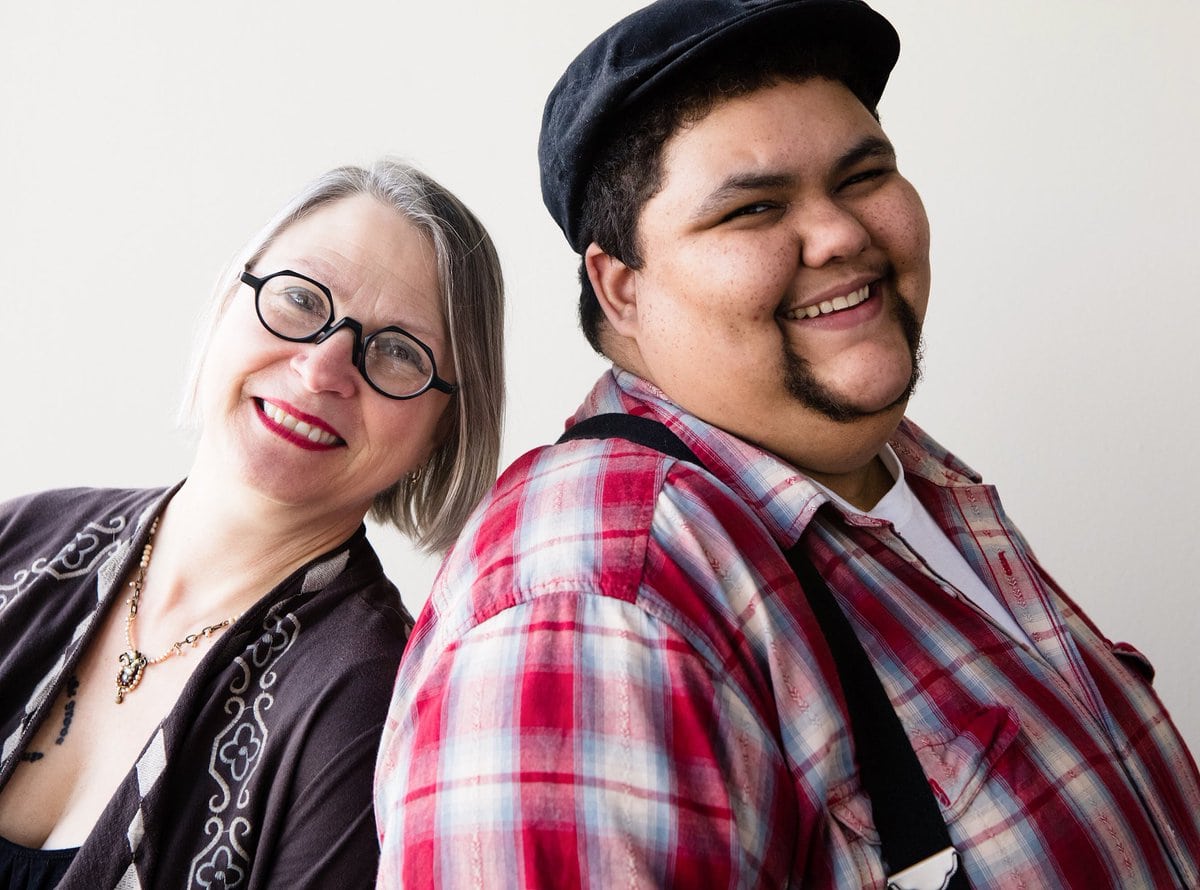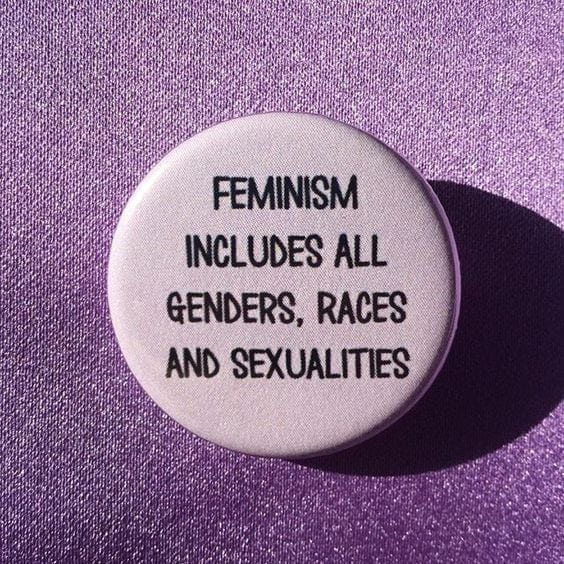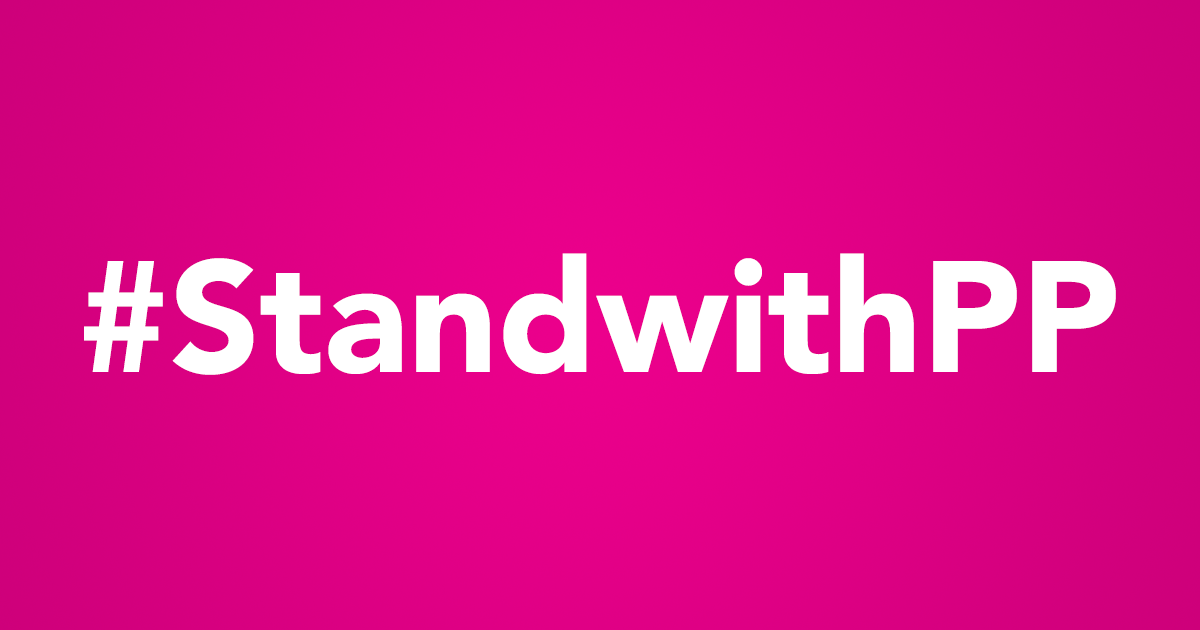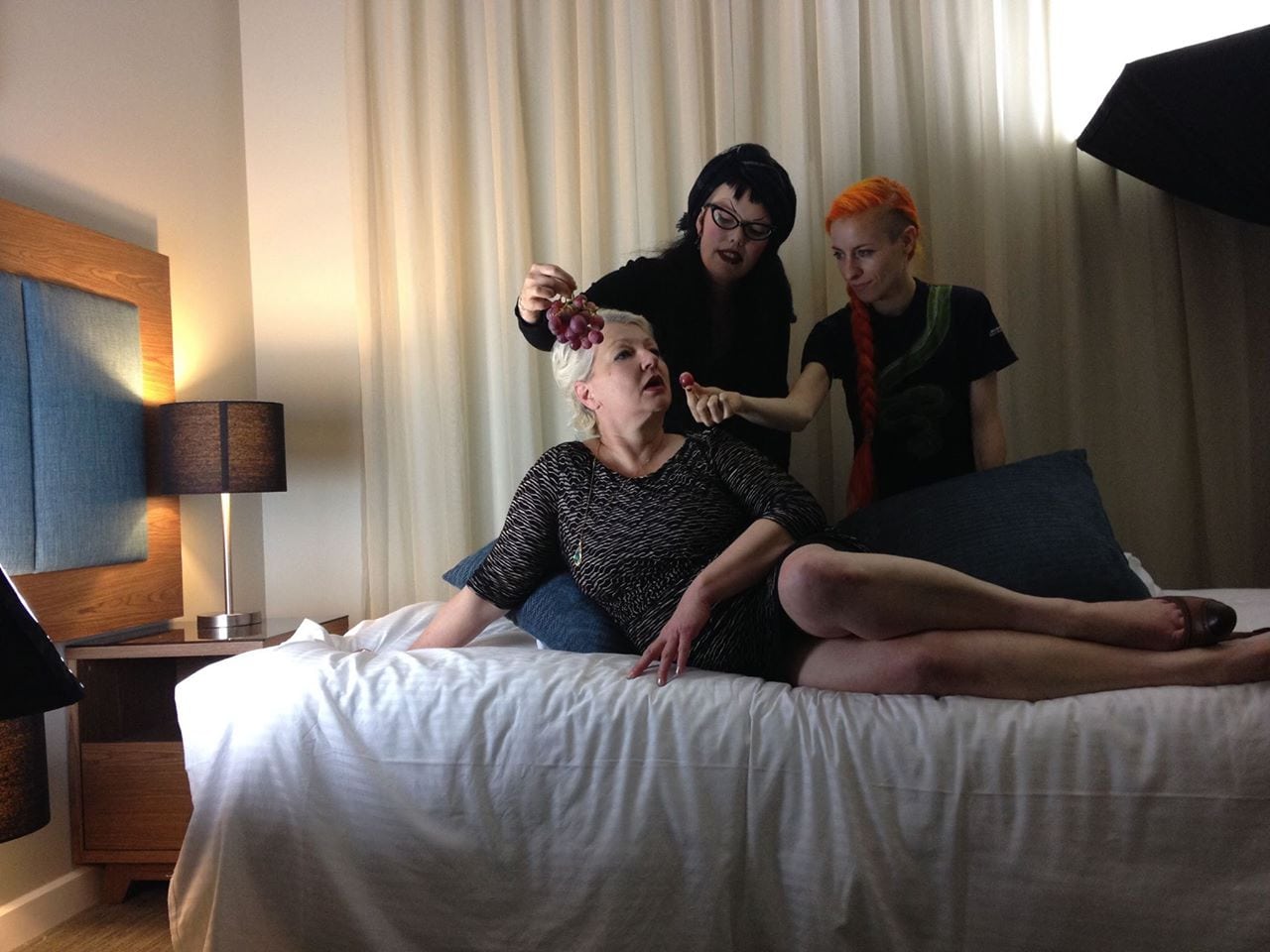What is your role at Good Vibrations, and what does a “typical” day look like for you?
Dr. Carol: I’m Staff Sexologist, company historian, and curator of the Antique Vibrator Museum. My elevator-speech statement re: my job is that I represent Good Vibrations to the public and the press–but that has many components, and I’m also very involved in staff education along with Andy. I barely have a typical day, since sometimes I’m out doing speaking gigs or showing off the Antique Vibrator Museum, sometimes I’m answering customer sex questions, sometimes Andy and I are collaborating on a training or some other project, and sometimes I’m writing (blog posts, product descriptions, or other projects). One year, I spent much of my time working with Shar Rednour on The Sex & Pleasure Book: Good Vibrations Guide to Great Sex for Everyone.
Educator Andy: I wear many hats here at Good Vibes, but my main role is within our education dept. Along with my fabulous colleague, Dr. Carol Queen, we work to provide our staff with the most accurate, inclusive, and current sex ed information. I also manage our Sexual Health Outreach Workshops (SHOW), where we work with several universities, hospitals, and community organizations to bring sex education and sex positive resources directly to them.
A typical day in the life of Educator Andy starts with checking in with our store managers, coordinating our in-store events and off-site workshops, building partnerships with community groups like Planned Parenthood or neighborhood LGBTQ centers, working closely with our buying department to help in selecting our products, and on a great day- getting to present a workshop or provide an educational store tour directly to our community. I often tell people my job is the best job in the world because my role is simply to be a cheerleader for our customers. To offer information and permission in a world that’s often denied both and say, “This is here for you, as much or as little as you would like, but you deserve access to this.”
What have you found to be the most common topics people have questions about when it comes to their sex life?
Dr. Carol: Lots of people have questions about sexual functioning (erection, anal sex), others about pleasure (orgasm issues with women are a big one–how can it possibly be 2018 already, and still so much education to do about the role of the clitoris?). There are also still lots of questions from people who feel (or may be) sexually mismatched with partners. (Often the problem here is that they aren’t communicating well, or at all.)
Educator Andy: The biggest thing I see is how everyone wants to be “normal” whatever that means to them. Since sex is something that we don’t often talk about with each other, I see customers coming in afraid that they aren’t doing something “right”, or that their interests are “strange.”
In addition to offering a wonderful range of sex toys and pleasure products, one of the things Good Vibrations is best known for is founding National Masturbation Month (which we LOVE at SGP!). Why is self-love SO important?
Educator Andy: This is a perfect segue! I think the more you learn about your own pleasure, the easier time you’ll have in life in fulfilling it, both alone and with others. Because of the lack of sex education provided, there’s this sorta prescribed way in which people learn about sexuality. We see it on TV, movies, in porn, in music, or even literature. And how does that sex look? Is it a sexually empowered person who knows what they want meeting another sexually empowered person who knows the same? Doubtful.
When we fail to show the diversity of sex, everyone loses. One of the ways that this affects women, specifically, is what sexologists call “Someday my Prince will come, and so will I.” The idea that you don’t need to learn or experience your own pleasure because one day, someone will come along and show you your own sexuality. Making you feel things that you’ve never felt before. Now, though this is a hot fantasy for some, it shouldn’t be the expected reality for all. […] That’s not how pleasure works. Your sexuality is yours, and you get to share it or not, as you see fit. Period. And, as sexually active people, we should be spending time trying to learn about our needs, and practice exchanging that information with those we choose to be sexual with. Or more simply put, learn yourself, then learn your partner. Like an oxygen mask on a plane, you have to put yours on first before you can assist someone else’s with theirs.
Dr. Carol: Well, first, “love the one you’re with,” right? Masturbation is pleasurable, calming, relieves pain, helps you sleep, and is a form of self-care. Anyone of any orientation and relationship status can enjoy it; it’s an ever-present pleasure option. One of the central insights of the movement for women’s sexual empowerment involves masturbation not just as a pleasure alternative but as a fundamental way of getting in touch with one’s sexuality. And I say “women’s” because that’s the movement with masturbation at the center, but of course, this insight is valuable for people of any gender.
If you could only choose one toy to be in your masturbation toolkit, which would it be?
Dr. Carol: ONLY ONE? >;-)> The Magic Wand.
Educator Andy: That’s such a hard question! Different products serve different needs really. I think mine would be my trusty vibrator, you know the types; the ones that get you off in a short period of time so you can crash out in bed after a long day.
How have viewpoints about masturbation changed throughout the years?
Dr. Carol: They have and they haven’t, actually. There are so many masturbation-positive people now, who have been affected by sex-positive discourse and the pro-masturbation movement. BUT there are also tons of people who are still ashamed or afraid. It seems to boil down to two things: the first is the fundamentally conservative “sexual feelings are wrong unless they are shared with your partner”. But masturbation is also scorned by sexually active people who feel it’s a second-best form of sex and you *should* always be able to find another human to have sex with.
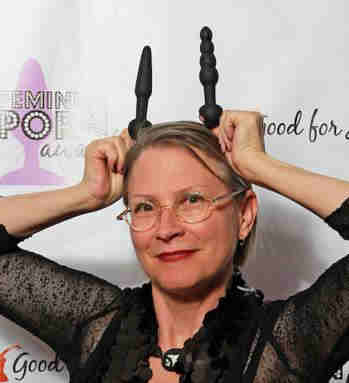
Educator Andy: In some ways, it’s changed tremendously! Just the fact that you and I both have jobs talking about it is amazing! But on the other hand, those jobs are needed because we still live in a world that holds so much sex negativity, stigma, and shame. That’s why I constantly try to remind myself that even with all the progress we’ve made in society, there’s still so much work to be done.
How has feminism changed the business of pleasure?
Educator Andy: When Joani Blank opened the first Good Vibrations in 1977, she did so as a direct response to the lack of spaces to access basic sex information and products for women. As feminism and our understanding of it as society has grown, so have we. Feminism affects everyone for the better and so does sex education, so our vision needs to be inclusive of supporting communities of color, Queer and Trans folks, inclusive of diverse body sizes, folks with disabilities, seniors, et cetera.
Dr. Carol: It’s helped make women’s actual experience/s–not culturally biased fantasies about them–a focus. (And other “not-cis-male” persons’, too.) It’s really hard to convey to people who’ve grown up with access to the internet and sex-positive thinking how completely absent the focus on women’s sexual empowerment was. I would highly recommend Lynn Comella’s book Vibrator Nation in the context of this question–it’s a history of the rise of the women’s market and feminist entrepreneurial response to it.
What is the myth of “normal sexuality,” and what is your top tip for overcoming it?
Dr. Carol: It’s the idea that there is a narrow range of acceptable kinds of sexual expression. I almost never use the word “normal” without quotes, to call attention to it as problematic. It may be the single most damaging word in all of human sexuality. This fear of not being normal causes people real pain and dysfunction.
Top tip: Embrace the old philosophical adage “Know thyself.” Instead of worrying that something you want or fantasize about makes you different from others, start to focus on what makes you the unique sexual person you are. (Many of the others are worrying whether they are normal as well!)
Educator Andy: Like I said before, there is no “normal” when it comes to sexuality. It’s treating sex as an experience that all parties engage in and communicate openly in to discover what works best for them. Think of it this way- when you’re gonna make coffee for someone you care for, do you make it the way you like it? Do you make it the way your ex liked it? Most will answer no to those because they either ask their person how they like it, or maybe even let them show them how they like it. Don’t you think sex should be given the same respect that we give to someone’s coffee?
In your eyes, how are sexual minorities left out of the human sexuality narrative?
Educator Andy: In almost every possible way. I say this, as an educator, but also as a queer, trans, fat, person of color. And even with that, I have privilege myself. I am able-bodied and I speak English, just to name a few. That’s why I’m so proud of the work that our team does here at Good Vibes. We all strive to serve as many people as possible and especially those that can’t find products for them in other environments. Additionally, I’m especially proud of the communities we partner with. We’ve supported Planned Parenthood, Transgender Law Center, Bay Area Women Against Rape, National Breast Cancer Coalition, Queer Women of Color Media Arts Project, and many more each year.
Dr. Carol: Well, I have two answers for this, actually, and one is counter-intuitive perhaps. I’ll start with that.
In a way, sexual minorities have been absolutely central to the sexuality narrative. Before sexology began trying to understand sexuality because clinicians sought to understand diverse sexual patterns/desires, there was very little sexual discourse. As Foucault points out, it was pretty much the realm of religion/sin and the law/crime–normativity was assumed and not interrogated much. Digging into sexual difference changed that, over the course of about a century, completely.
But now that we do have a narrative, elements of cis/heteronormativity are back as a substantial element of the narrative. And the place where this is most clear is high school sex education, where often sexual-minority youth often hear *nothing* relevant to their own personal sexual concerns. Pop culture can ignore them too. But youth education in most places still seeks to erase difference.
Do you have any upcoming projects we can look forward to?
Dr. Carol: I am working with my partners Robert Morgan Lawrence and Dina Fayer to do a book on sexual anatomy and neurology–Robert’s specialty. After that, another book of essays, my erotic fiction collected in one place, eventually a memoir.
Educator Andy: I’ve been working at Good Vibrations for 13 years, and in many ways I feel like this is just the beginning. Trust me, there is a lot more to come from Educator Andy 🙂
Editor’s note: Some responses have been edited for clarity and length.

